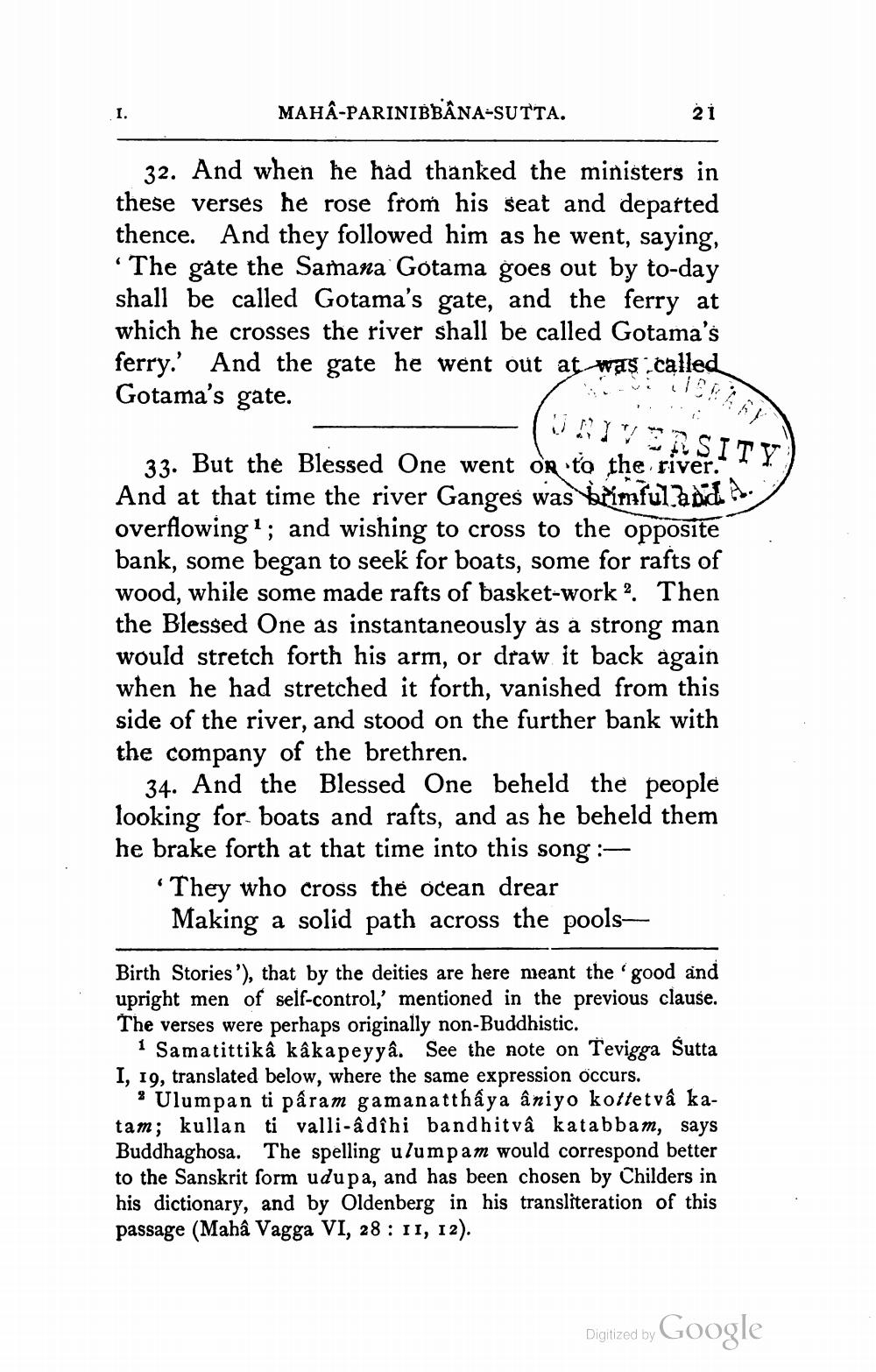________________
MAHA-PARINIBBẦNA-SUTTA.
2 1
32. And when he had thanked the ministers in these verses he rose from his seat and departed thence. And they followed him as he went, saying, "The gate the Samana Gotama goes out by to-day shall be called Gotama's gate, and the ferry at which he crosses the river shall be called Gotama's ferry. And the gate he went out at was called Gotama's gate.
UNIVERSITY
33. But the Blessed One went on to the river.. And at that time the river Ganges was beimfulladd Abe overflowing l; and wishing to cross to the opposite bank, some began to seek for boats, some for rafts of wood, while some made rafts of basket-work?. Then the Blessed One as instantaneously as a strong man would stretch forth his arm, or draw it back again when he had stretched it forth, vanished from this side of the river, and stood on the further bank with the company of the brethren.
34. And the Blessed One beheld the people looking for boats and rafts, and as he beheld them he brake forth at that time into this song :
"They who cross the ocean drear Making a solid path across the pools
Birth Stories '), that by the deities are here meant the good and upright men of self-control,' mentioned in the previous clause. The verses were perhaps originally non-Buddhistic.
1 Samatittikâ kâkapeyyâ. See the note on Tevigga Sutta I, 19, translated below, where the same expression occurs.
? Ulumpan ti param gamanatthấya âniyo kottetvá katam; kullan ti valli-âdîhi bandhitva katabbam, says Buddhaghosa. The spelling ulumpam would correspond better to the Sanskrit form udupa, and has been chosen by Childers in his dictionary, and by Oldenberg in his transliteration of this passage (Maha Vagga VI, 28: 11, 12).
Digitized by Google




